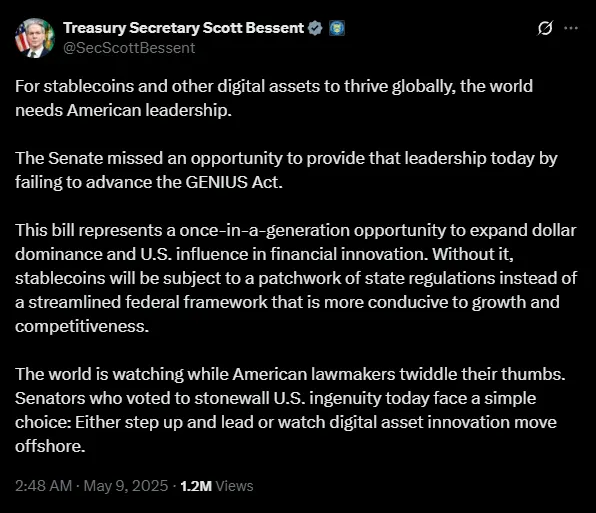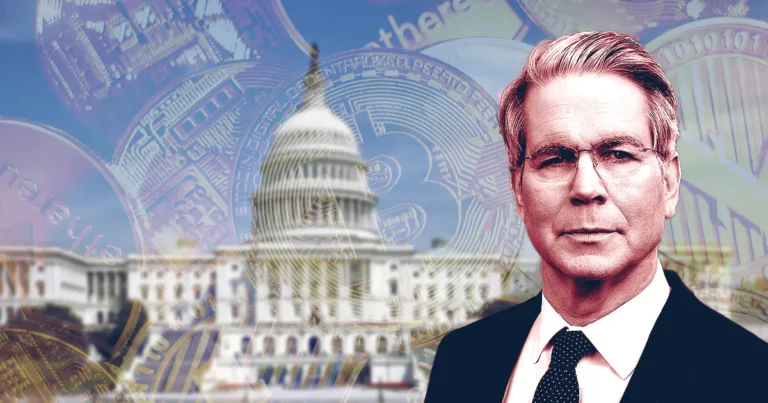9-5-2025 – The United States Senate’s decision to halt the progress of the GENIUS Act on Thursday has ignited a firestorm of criticism, with Treasury Secretary Scott Bessent leading the charge. In a pointed statement on X, Bessent decried the vote as a squandered chance to cement America’s leadership in the rapidly evolving arena of digital assets. “The world demands American resolve to ensure stablecoins and other digital innovations flourish globally,” he wrote, lamenting the Senate’s failure to advance a bill poised to establish a cohesive federal framework for stablecoin issuance. Without such a structure, he warned, the industry faces a fragmented landscape of state-level regulations, potentially stifling innovation and ceding ground to international competitors.
The GENIUS Act, which earlier this year garnered bipartisan backing, faltered at a critical procedural vote after several Senate Democrats, including Sen. Mark Warner of Virginia, withdrew support. Warner, in a Thursday statement, cited an unfinished legislative text as his rationale, arguing that rushing an incomplete bill would be irresponsible. Other Democrats echoed concerns over national security, insufficient anti-money laundering measures, and last-minute textual revisions. Political undercurrents further complicated matters, with some lawmakers wary of the bill’s association with recent cryptocurrency endorsements by President Donald Trump. Sen. Elizabeth Warren, a vocal critic, cautioned that advancing the legislation without robust safeguards risked enabling “Trump’s corruption.”

The bill’s derailment casts a shadow over the future of stablecoin regulation and broader digital asset policy, particularly with the 2026 midterm elections looming, when every House seat and a third of the Senate will face voters. Bessent framed the GENIUS Act as a rare chance to bolster the dollar’s global dominance and amplify U.S. influence in financial innovation. “While lawmakers dither, the world watches,” he wrote, urging decisive action to prevent the migration of digital asset innovation overseas. Sen. Cynthia Lummis, a staunch advocate for crypto policy, echoed this urgency, labelling the vote a significant blow. “Digital assets are the future, and America must lead,” she tweeted, expressing gratitude to her pro-crypto colleagues.
Despite the setback, glimmers of hope persist. A crypto policy expert, suggested the bill could resurface as early as next week, though its prospects remain uncertain. Warner, too, expressed optimism for a swift return, advocating for floor consideration once a revised text is finalised and thoroughly reviewed. Meanwhile, industry leaders remain steadfast in their push for clarity. Coinbase CEO Brian Armstrong, in a tweet, underscored the bipartisan commitment to crafting clear crypto regulations, noting that after years of being sidelined, “crypto is now at the forefront of the agenda.” The Senate’s stumble may delay progress, but the broader quest for a robust digital asset framework continues to command attention from lawmakers and industry titans alike.
Great progress on U.S. crypto legislation this week and more to come next week:
➡️ Market structure draft legislation introduced + discussed.
➡️ Bipartisan work continues to bring stablecoin legislation to the floor (likely voting again early next week)
➡️ @StandwithCrypto Day…— Brian Armstrong (@brian_armstrong) May 8, 2025


